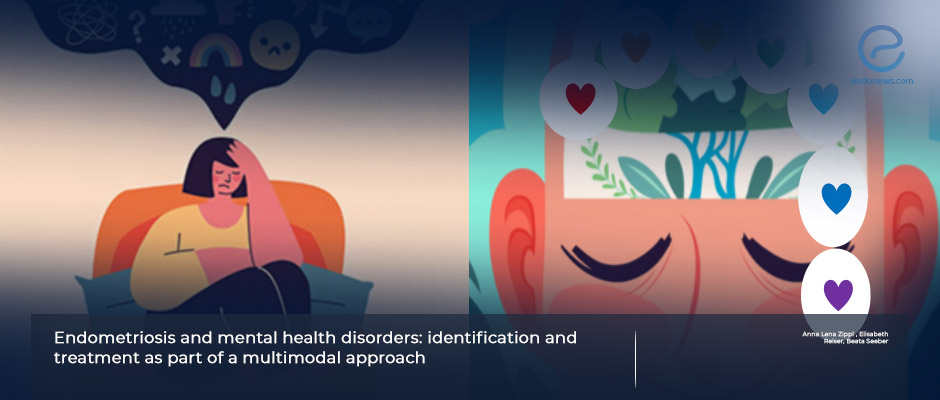Are women with endometriosis more prone to have mental health disorders?
Mar 15, 2024
There is a higher risk for anxiety, depression, sexual dysfunction and eating disorders in women with endometriosis.
Key Points
Highlights
- Pelvic pain and genetic predisposition are mainly responsible for the increased incidence of mental health disorders in women having endometriosis.
Importance:
- An individualized and multidisciplinary approach is essential for endometriosis patients to provide prompt diagnosis, targeted medical interventions, and psychological support.
What’s done here?
- A systematic literature review was conducted to assess the coexistence of endometriosis and mental health disorders and to explore the underlying possible etiologic reasons.
- The recent meta-analyses and large cohort and case-control studies were included, endometriosis was confirmed by imaging or surgery or clinical criteria; mental health disorders were diagnosed using a validated multiitem scale.
- Women having endometriosis symptoms were compared with symptom-free endometriosis patients and healthy women.
Key results:
- Anxiety symptoms are more common in women with endometriosis: The most likely reason is the presence of chronic pelvic pain.
- Another factor that increases anxiety levels is the chronic psychosocial impact of the disease (disrupted daily activities, impaired quality of life, and challenges in maintaining relationships).
- Genetic predisposition is another underlying reason for higher levels of anxiety symptoms.
- There is a proven relationship between depression and endometriosis.
- Endometriosis-associated pain and genetic predisposition are mainly responsible for the development of depressive symptoms in endometriosis patients.
- Other risk factors for depression are nulliparity, sleeping disturbance, fatigue, body image disturbances, prior use of gonadotropin-releasing hormone agonists, and oral contraceptives.
- Sexual dysfunction is more likely experienced in endometriosis patients due to several factors (chronic pelvic pain, decreased libido, depressive and anxiety symptoms).
- Because of the complex pathogenesis of sexual dysfunction, interdisciplinary and multimodal treatment is essential to restore sexual functions.
- Chronic pelvic pain in women with endometriosis also causes eating behavior alterations.
Lay Summary
Endometriosis is a long-term morbidity resulting in impaired physical, sexual, psychological, and social health. The most common clinical findings of endometriosis patients are chronic pelvic pain and fertility problems, associated with impaired quality of life. These women are also affected regarding psychological health due to disease-associated symptoms.
A group of scientists from Austria led by Dr.Seeber published a systematic literature review entitled “Endometriosis and mental health disorders: identification and treatment as part of a multimodal approach” in the journal named Fertility and Sterility.
In this review, the authors sought to investigate the relationship between endometriosis and mental health disorders. They found that anxiety, depression, sexual dysfunction, and eating disorders are experienced more frequently by endometriosis patients. The presence of chronic pelvic pain and genetic predisposition plays a major role in this association. Diagnostic delay of endometriosis of up to 8-10 years also contributes development of chronic pelvic pain syndrome and worsening of psychological symptoms. Although there is no specific recommendation to screen women at high risk for depression and anxiety according to international guidelines, short screening questionnaires for depression and anxiety can be used, especially in symptomatic endometriosis patients. Interdisciplinary and multimodal approaches should be performed to improve the patient’s overall quality of life.
“A holistic approach to care by gynecologists as well as mental health professionals should emphasize prompt diagnosis, targeted medical interventions, and psychological support, while also recognizing the role of supportive relationships in improving the patient’s quality of life.” the authors added.
Research Source: https://pubmed.ncbi.nlm.nih.gov/38160985/
endometriosis mental disorders mental health depression anxiety sexual dysfunction eating disorders

